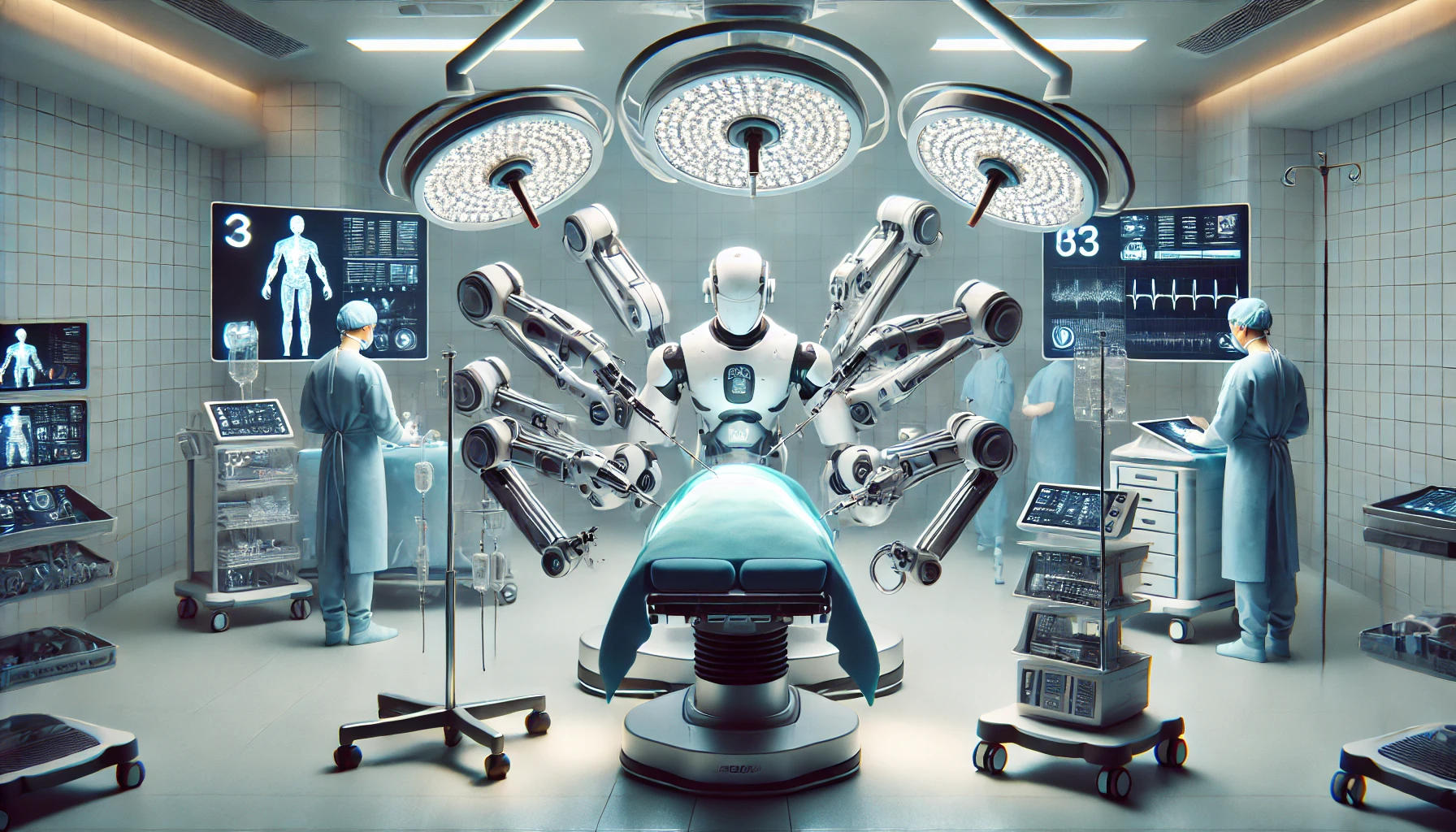AI-Powered Surgeons: The Future of Robotics in Minimally Invasive Surgeries

The Rise of AI in the Operating Room
Imagine a world where surgeons no longer need to get tired, miss a stitch, or second-guess their movements. Thanks to the power of AI-driven surgical robots, that world is fast becoming a reality. These mechanical marvels are not just performing surgeries—they’re revolutionizing them. You could say they’ve got more precision than a surgeon on their third cup of coffee. AI-powered robots are capable of performing minimally invasive surgeries with such accuracy that even human hands are taking notes. Forget shaky hands; these robots never flinch. Their precision is the reason hospitals around the globe are betting big on this tech, especially when it comes to life-saving procedures like heart surgeries or cancer removals.
Case Studies That Make You Say 'Whoa!'
Don’t just take our word for it. Let’s talk about real-life examples where AI-driven robots have saved the day—literally. One standout is the da Vinci surgical system, which sounds more like an art exhibit than a medical tool, but trust me, this thing is a masterpiece. In a case at Cleveland Clinic, a patient undergoing prostate cancer surgery benefited from such surgical precision that recovery time was significantly reduced. What once required a long hospital stay now allows patients to be home in days, sipping soup and binge-watching their favorite shows. Another jaw-dropping case involved a complex heart surgery in New York where an AI-powered robot not only performed the operation but did so while communicating data to another team in London in real-time. Talk about multitasking!
Better Outcomes for Patients—More Netflix, Less Bedrest
So, how do these high-tech wonders affect patient outcomes? For one, AI-driven robotic surgeries are typically minimally invasive, meaning smaller incisions and less trauma to the body. Smaller incisions mean less pain, quicker recovery times, and fewer chances for complications like infections. Translation: you’re back to your life (and your Netflix) faster. Studies show that patients undergoing robotic-assisted surgeries report fewer post-op issues and are less likely to be re-admitted to the hospital for complications. And let’s face it, no one enjoys being back at the hospital. It's a win-win: doctors can operate more efficiently, and patients can recover in peace, without the fear of returning for a 'do-over'.
How AI Enhances Precision—Move Over Human Error
Human surgeons are great, don’t get me wrong. But everyone has their off days—except robots. These AI-powered machines are programmed with algorithms that not only assist in planning the surgery but also guide the tools with micrometer precision. It’s like having a GPS for surgery, but instead of rerouting you through traffic, it’s rerouting instruments around delicate tissues and nerves. If that doesn’t sound futuristic, I don’t know what does. AI systems learn from thousands of previous surgeries, becoming smarter with every procedure. So, every time a robot assists in surgery, it’s learning how to become even more precise. It’s like having a seasoned pro in the operating room who’s always one step ahead.
AI vs. Surgeons: Who Wins?
Now, let’s address the elephant in the room. Are robots going to replace surgeons entirely? Short answer: not anytime soon. While AI and robotic systems are incredible at enhancing precision and efficiency, they still require a human at the helm. Think of the surgeon as the conductor and the robot as the orchestra. The two working together create surgical symphonies that save lives. But don’t worry, the robots aren’t unionizing (yet). Surgeons will always be needed to make the critical decisions, interpret data in real-time, and provide the human touch that no robot can replicate—at least for now.
The Future: What’s Next for AI in Surgery?
The future of AI in surgery is not just promising; it's downright exciting. We’re talking about surgeries becoming so precise that the margin for error is almost non-existent. AI is also being used to develop new surgical techniques, enabling procedures that were once considered too risky or complex. As AI continues to advance, we might even see remote surgeries becoming commonplace, where a top surgeon in one country performs an operation on a patient halfway across the world. And who knows? One day you might be telling your grandkids about how 'back in my day, surgeons actually had to be in the room!'
Final Thoughts: Would You Let a Robot Operate on You?
The rise of AI in the operating room is nothing short of revolutionary. With robotic precision and enhanced patient outcomes, it's no wonder hospitals are investing in these technologies. But what do you think? Would you feel comfortable letting a robot take the scalpel? Or do you prefer the traditional touch of a human surgeon? One thing’s for sure: the future of surgery is a fascinating blend of human skill and robotic precision.



